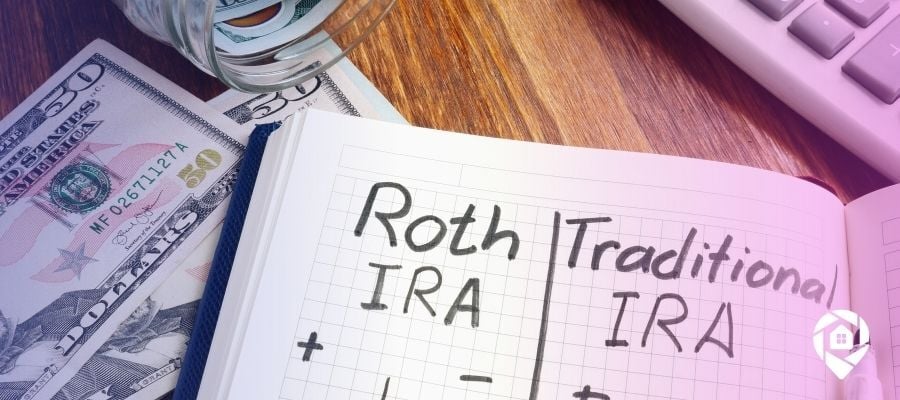
How to Avoid Pitfalls of Owning Real Estate in an IRA

Investing in real estate through an Individual Retirement Account (IRA) has become an attractive option for many people looking to grow their retirement savings. With the right strategy, owning property in an IRA can offer tax advantages, diversification, and the potential for strong long-term returns.
But here’s the catch: while the idea sounds appealing, there are also several pitfalls of owning real estate in an IRA that can cause headaches if you’re not prepared. From liquidity issues to complicated tax rules, these challenges can make or break your investment strategy.
The good news is that with the right planning, you can avoid many of these problems. In this guide, we’ll break down the most common pitfalls of owning real estate in an IRA, explain how to steer clear of them, and help you decide if this path is the right fit for your retirement goals.
Understanding Real Estate in an IRA
Before jumping into the risks, it’s important to understand what it really means to hold real estate inside an IRA. Many investors assume it works the same way as buying property outside of retirement accounts, but there are some key differences.
What Is a Self-Directed IRA?
A traditional or Roth IRA usually limits you to common investments like stocks, bonds, or mutual funds. But with a self-directed IRA, you get more freedom. This type of account lets you invest in alternative assets—like real estate, private businesses, or even precious metals.
For real estate investors, a self-directed IRA opens the door to buying rental homes, commercial properties, or even raw land inside their retirement account. The goal is to let your property grow in value or produce rental income that builds your retirement nest egg.
Why Investors Consider Real Estate in an IRA
So why would anyone choose to put real estate in an IRA? There are a few big reasons:
- Diversification – Real estate helps spread out your investments so you’re not relying only on the stock market.
- Tax advantages – Rental income or capital gains can grow tax-deferred in a traditional self-directed IRA, or tax-free in a self-directed Roth IRA.
- Long-term growth – Real estate has the potential to increase in value over time, making it a powerful tool for retirement planning.
These benefits make real estate in an IRA appealing, but they also come with extra rules and restrictions from the IRS. Understanding those rules is the first step to avoiding the pitfalls of owning real estate in an IRA.
The Pitfalls of Owning Real Estate in an IRA
While the idea of holding property in your retirement account may sound like a smart move, it’s not as simple as it seems. There are several pitfalls of owning real estate in an IRA that can trip up even experienced investors. Let’s look at the most common ones.
Lack of Liquidity
Real estate isn’t like stocks or mutual funds that you can sell with the click of a button. If your money is tied up in a rental property, it can take months to sell—and even then, you might not get the price you hoped for.
This becomes a problem if you need quick access to cash. For example, once you reach retirement age, the IRS requires you to take required minimum distributions (RMDs) from a traditional IRA. If most of your IRA is locked up in property, it can be hard to cover those distributions without selling part of the real estate.
Unexpected Taxes and UBIT
One of the biggest perks of using an IRA is the tax benefits. But here’s where things get tricky. If your IRA property earns certain types of income, you could end up owing a tax called Unrelated Business Income Tax (UBIT).
This usually happens when the IRA uses borrowed money (like a mortgage) to buy the property, or if the income is tied to a business activity. Suddenly, what seemed like a tax-free or tax-deferred investment could come with a surprise bill from the IRS.
Prohibited Transactions and Self-Dealing
IRAs come with strict rules about how you can use the assets inside them. For example, you can’t live in the property, let your family use it, or buy and sell it between yourself and your IRA. These are called prohibited transactions, and breaking these rules can completely disqualify your IRA, leading to penalties and taxes.
Even something that seems harmless, like fixing a leaky faucet in your IRA-owned rental, can count as “self-dealing,” since you’re personally providing a benefit to the property. It’s easy to make mistakes if you don’t fully understand the restrictions.
How to Avoid the Common Pitfalls
The pitfalls of owning real estate in an IRA can seem overwhelming, but the good news is that most of them can be avoided with careful planning. Here are some practical ways to protect yourself and your retirement savings.
Plan for Liquidity Needs
Since real estate isn’t easy to sell quickly, it’s smart to keep extra cash inside your IRA. This money can cover property expenses like taxes, repairs, and insurance, as well as any required minimum distributions when you reach retirement age. Think of it as a safety net that keeps you from being forced to sell a property at the wrong time.
Stay Ahead of Tax Traps
UBIT can catch many investors off guard, but with the right strategy, you can avoid it. One option is to buy properties outright with cash from the IRA instead of borrowing. Another solution is to use a solo 401(k) instead of an IRA, since these accounts often have more favorable tax treatment when real estate is involved.
Use a Self-Directed IRA Wisely
Having more investment choices is exciting, but it also means more responsibility. To stay on track, make sure you fully understand the rules for prohibited transactions. That means no personal use of the property and no deals with close family members. When in doubt, ask a professional before making a move. It’s better to be safe than sorry.
Work with Experienced Professionals
Even confident investors can get tripped up by the fine print of IRA rules. A financial advisor or custodian who specializes in self-directed IRAs can guide you through the process, help you avoid mistakes, and ensure you’re making the most of your retirement strategy.
Is Real Estate in an IRA Right for You?
Real estate in an IRA can be a powerful tool, but it isn’t the right fit for everyone. If you value liquidity and simplicity, traditional investments like stocks or mutual funds may be a better option. On the other hand, if you’re comfortable with long-term commitments and strict rules, real estate can bring strong growth and tax advantages.
The key is balancing the rewards with the risks. Make sure your overall retirement plan has a mix of assets, so you’re not putting all your eggs in one basket.
Final Thoughts on the Pitfalls of Owning Real Estate in an IRA
The idea of using your IRA to invest in property can be exciting, but it’s not without challenges. From liquidity issues to complex tax rules, the pitfalls of owning real estate in an IRA are very real. The good news is that most of these challenges can be avoided with smart planning, a clear strategy, and the right professional guidance.
If you take the time to understand the rules, plan for expenses, and avoid prohibited transactions, real estate in an IRA can be a valuable part of your retirement portfolio. The key is to approach it with caution and knowledge, not just enthusiasm.
FAQs About Real Estate in an IRA
1. Can I live in a property owned by my IRA?
No. Using the property for personal benefit is a prohibited transaction and could disqualify your IRA.
2. What happens if I don’t have enough cash in my IRA to cover property expenses?
You can’t pay for expenses out of pocket. All costs must be covered by funds inside the IRA, which is why it’s important to keep extra cash in the account. You can deposit more money into the IRA, but it will still need to stay within the contribution limits of the IRA.
3. How can I avoid paying UBIT taxes?
The easiest way is to avoid borrowing money to buy the property. You can also consider using a solo 401(k), which has more favorable tax treatment in some cases.
4. Is real estate in an IRA a good idea for beginners?
It depends. If you’re new to both investing and retirement accounts, it may be better to start with simpler assets first. Real estate in an IRA works best for investors who are comfortable with the rules or who have professional guidance.

About Samantha Ankney
Samantha is the Social Media Manager at DealMachine, where she oversees all social media strategies and content creation. With 4 years of experience at the company, she originally joined as a Media Specialist, leveraging her skills to enhance DealMachine's digital presence. Passionate about connecting with the community and driving engagement, Samantha is dedicated to sharing valuable insights and updates across all platforms.



